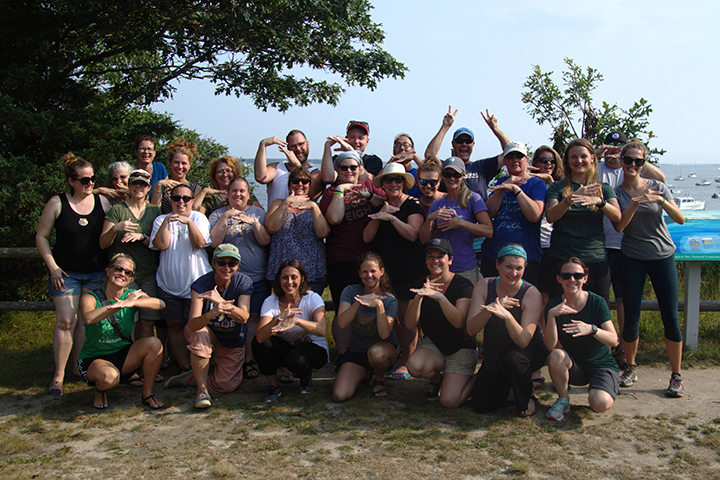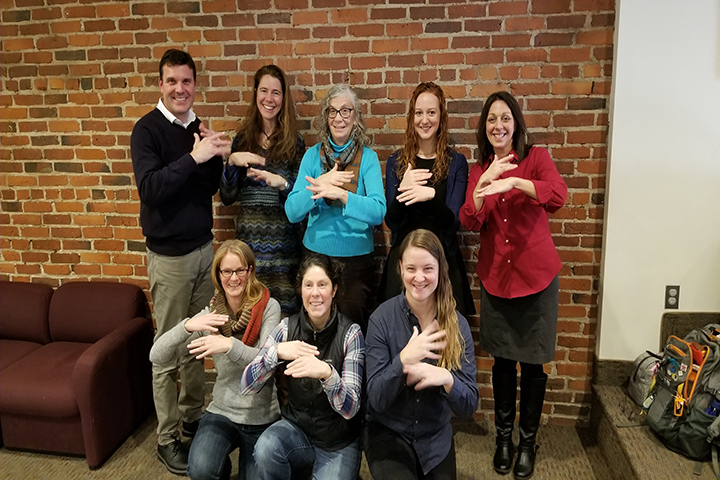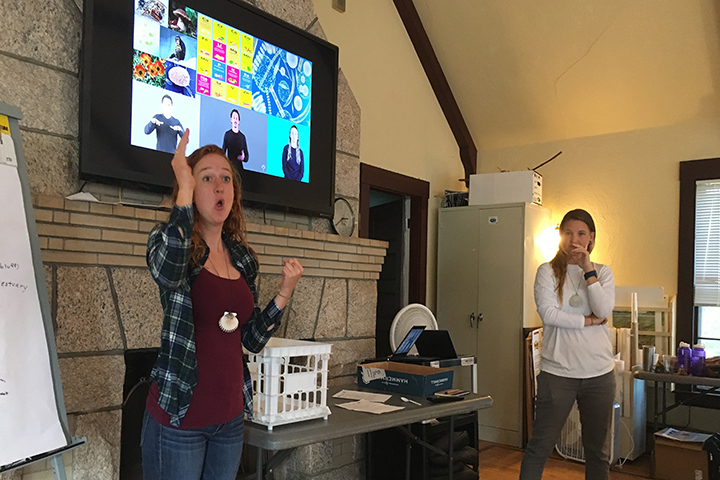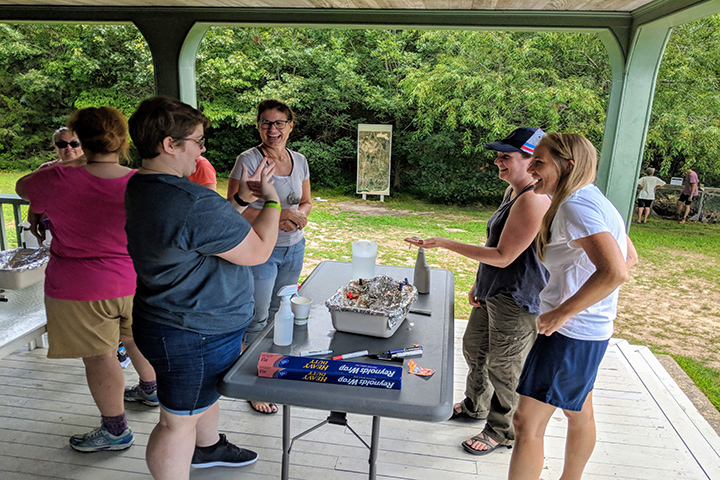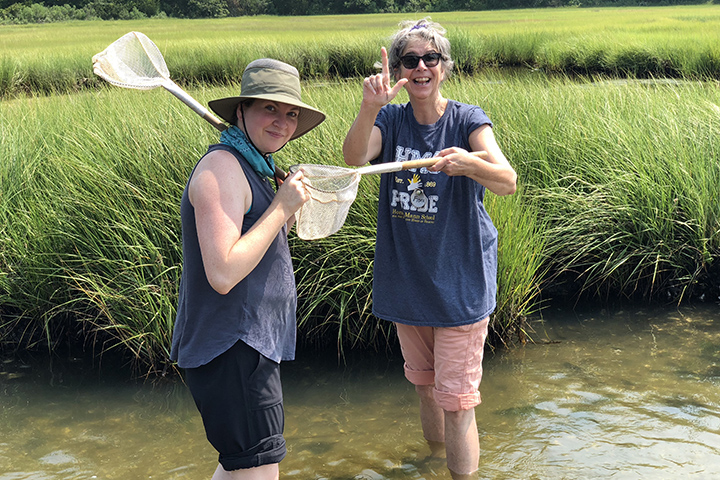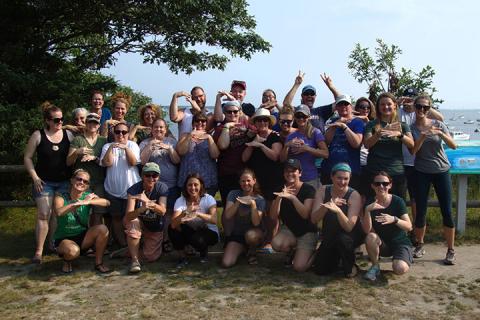
Deaf and hard of hearing people are underrepresented in science and technical fields, including coastal science and management. Teachers working with deaf students face unique challenges: a lack of specialized American Sign Language (ASL) vocabulary to foster student understanding of complex science concepts; few teacher training opportunities that pair hands-on environmental science with meaningful discourse; and minimal support for field-based learning with deaf students. This project addressed these barriers by developing and promoting new signs for key watershed and estuarine concepts, providing professional development for teachers of the deaf, and creating customized field experiences for deaf students at three northeast research reserves.
